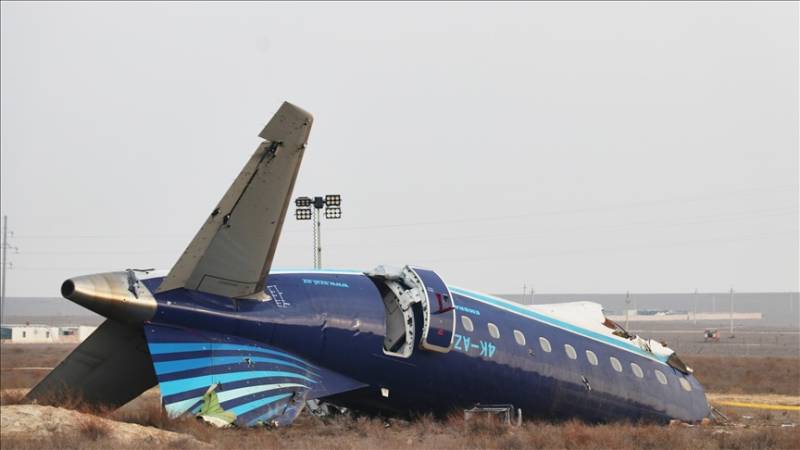The Kremlin on Thursday reiterated Russia’s commitment to an objective and impartial investigation into the Dec. 25 crash of an Azerbaijan Airlines plane in Kazakhstan after earlier trying to land in Russia.
Authorities are working diligently to determine the causes of the incident, spokesman Dmitry Peskov told a press briefing in Moscow.
He stressed how Russian President Vladimir Putin has spoken with Azerbaijani President Ilham Aliyev twice since the incident, apologized, and expressed his condolences.
“All necessary assistance and cooperation are being provided to facilitate the investigation into the causes of this tragedy,” Peskov stated.
The plane, en route from Azerbaijan’s capital Baku to Grozny in Russia’s Chechen Republic – a city it tried unsuccessfully to land in – crashed 3 kilometers (1.8 miles) from the Kazakh city of Aktau, killing 38 out of 67 people on board.
Later that day, the airline suspended flights from Baku to Grozny, as well as flights from Baku to the city of Makhachkala in Russia’s neighboring Dagestan region.
On accusations between Azerbaijan and Armenia and escalating tensions, Peskov reaffirmed Russia’s dedication to peace, stability, and security in the Caucasus region, pledging to continue to nurture its relationships with both Azerbaijan and neighboring Armenia, two former Soviet republics.
“The South Caucasus is a neighboring region for Russia. We seek peace, stability, predictability, and an atmosphere of mutual trust and security in the Caucasus. We have good relations with both Azerbaijan and Armenia, and we highly value these relationships. We will do everything in our power to further develop them,” he added.
Asked whether Putin has recently been in contact with Aliyev or Armenian Prime Minister Nikol Pashinyan, Peskov said no recent communications had taken place.
Turning to the situation in Moldova’s breakaway Transnistria region, Peskov called it as a “crisis,” attributing responsibility to Moldova and Ukraine.
“For many years, Russia supplied natural gas, which was vital for Transnistria. However, due to decisions made by Ukraine and the Moldovan authorities, Transnistria has lost access to this supply,” Peskov explained.
“The situation is indeed in crisis,” he stressed. Transnistria is grappling with an energy crisis, driven by rising gas and electricity prices, which have sparked public protests.
Russia halted its gas supplies to Moldova in early January following a ban on Russian gas transit through Ukraine and Chisinau’s refusal to settle an outstanding debt for consumed fuel, which Russia estimates at $709 million.

